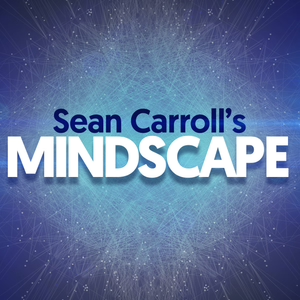
Embracing Catastrophe
11/28/18 • 46 min
We humans are our own worst enemies when it comes to what it will take to deal with existential risks. We are loaded with cognitive biases, can’t coordinate on a global scale, and see future generations as freeloaders. Seriously, are we going to survive? (Original score by Point Lobo.)
Interviewees: Nick Bostrom, Oxford University philosopher and founder of the Future of Humanity Institute; Toby Ord, Oxford University philosopher; Anders Sandberg, Oxford University philosopher; Sebastian Farquahar, Oxford University philosopher; Eric Johnson, University of Oklahoma professor of law
Learn more about your ad-choices at https://www.iheartpodcastnetwork.comSee omnystudio.com/listener for privacy information.
We humans are our own worst enemies when it comes to what it will take to deal with existential risks. We are loaded with cognitive biases, can’t coordinate on a global scale, and see future generations as freeloaders. Seriously, are we going to survive? (Original score by Point Lobo.)
Interviewees: Nick Bostrom, Oxford University philosopher and founder of the Future of Humanity Institute; Toby Ord, Oxford University philosopher; Anders Sandberg, Oxford University philosopher; Sebastian Farquahar, Oxford University philosopher; Eric Johnson, University of Oklahoma professor of law
Learn more about your ad-choices at https://www.iheartpodcastnetwork.comSee omnystudio.com/listener for privacy information.
Previous Episode

EP07: Physics Experiments
Surprisingly the field of particle physics poses a handful of existential threats, not just for us humans, but for everything alive on Earth – and in some cases, the entire universe. Poking around on the frontier of scientific understanding has its risks. (Original score by Point Lobo.) Interviewees: Don Lincoln, Fermi National Laboratory senior experimental particle physicist; Ben Shlaer, University of Auckland cosmologist University of Auckland; Daniel Whiteson, University of California, Irvine astrophysicist; Eric Johnson, University of Oklahoma professor of law Learn more about your ad-choices at https://www.iheartpodcastnetwork.com
Next Episode

End
Josh explains that to survive the next century or two – to navigate our existential threats – all of us will have to become informed and involved. It will take a movement that gets behind science done right to make it through the Great Filter. (Original score by Point Lobo.)
Interviewees: Toby Ord, Oxford University philosopher; Sebastian Farquahar, Oxford University philosopher
Learn more about your ad-choices at https://www.iheartpodcastnetwork.comSee omnystudio.com/listener for privacy information.
The End Of The World with Josh Clark - Embracing Catastrophe
Transcript
Ill conceived physics experiments, reckless experiments with viruses, unfriendly superintelligent AI. Dealing with each one of these will be a quagmire onto itself. But remember, existential risks are like nothing we've ever encountered before. We humans haven't been prepared by millennia of evolution like we have for other disasters. We're not equipped out of the box to deal with the existential risks that loom ahead in our near future. In fact,
If you like this episode you’ll love
Episode Comments
Generate a badge
Get a badge for your website that links back to this episode
<a href="https://goodpods.com/podcasts/the-end-of-the-world-with-josh-clark-82328/embracing-catastrophe-18447533"> <img src="https://storage.googleapis.com/goodpods-images-bucket/badges/generic-badge-1.svg" alt="listen to embracing catastrophe on goodpods" style="width: 225px" /> </a>
Copy




